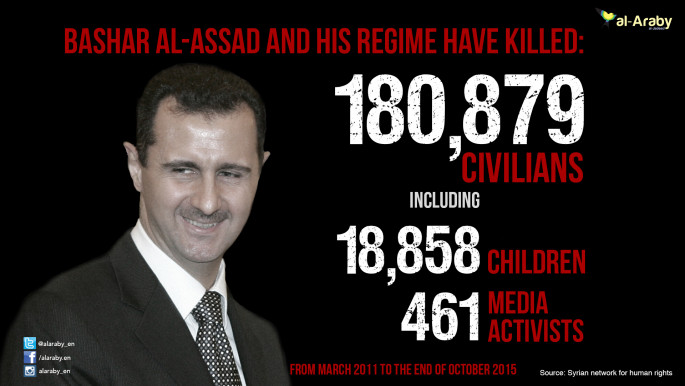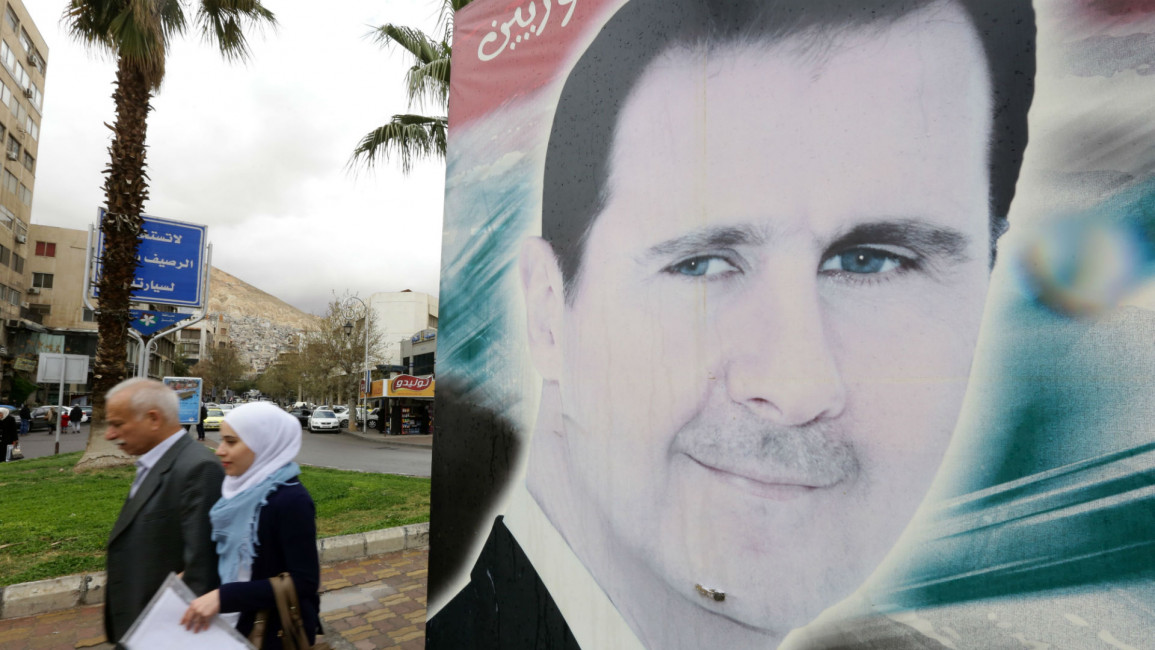'No victors, no vanquished': UN sees Assad staying, post-conflict
Assad would, however, be stripped of authority over the military and security apparatus as the first step in a multi-stage transition designed to draw a line under the war that has killed at least 400,000 people in the past five years.
The proposal is mentioned in a draft communique from Geneva, believed to have been authored by UN envoy Staffan de Mistura as the framework for negotiations. The document has been leaked exclusively to The New Arab and its sister Arabic-language publication.
"It indicates a role for all Syrians in their future state, on the basis of equality, inclusivity, with mechanisms for respect for human rights and dignity, and the right to fully participate in political processes," the document reads.
| 10 key dates in Syria's war |
|
2011: Revolt and repression - March 15: Unprecedented protests inspired by the Arab Spring erupt, demanding reform after 40 years of iron-fist rule by President Bashar al-Assad's family. 2012: All-out war 2013: Chemical attacks 2014: Rise of the extremists 2014: The fall of Homs 2015: Kobane liberated 2015: Al-Nusra spreads 2015: Russia intervenes 2016: Ceasefire |
The proposal fundamentally rejects the partition of Syria, and stresses the importance of reforming state institutions - such as the Supreme Court and wider judiciary - to become fully independent of the government.
And unlike in Iraq, where the civil service was eviscerated in a purge of Saddam supporters - leading to a breakdown in institutional knowledge and overall bureaucratic functioning - there will be no de-Baathification process in Syria, allowing government departments to continue operating without major societal upheaval.
| Read more: Syria opposition abandons Geneva peace talks as bombs devastate market towns |
De Mistura calls for: "A non-sectarian, pluralistic, democratic and multi-party state based on respect for rule of law and human rights, inclusivity, citizenship, co-existence, respect for dignity and diversity, non-discrimination, equal rights of men and women, freedom of expression, freedom of the press, freedom of religion, freedom of peaceful assembly and equal opportunity."
Reform of government institutions should be limited to achieving those goals, he writes.
The Transitional Government Body shall comprise 40 percent government members, 40 percent from the opposition, and 20 percent from civil society groups.
At least a third of each are to be women, the UN envoy suggests.
The method for selecting members of each delegation within the TGB remains unclear, but a list of 120 current officials are to be banned from holding office due to their roles in the war.
It is thought that opposition negotiators will also insist specific people on the list are banned from leadership positions in the Baath party itself.
Ambiguity also reigns over the confidence-building measures proposed by De Mistura. The proposal calls for an end to all proscribed attacks during negotiations - so no barrel bombs, chemical attacks or "acts of terrorism".
As the Assad government has used the term "terrorism" to describe practically all opposition, it is likely the opposition negotiating team will be seeking further legal advice to clarify the use of the word, so as to avoid stalling by Assad's negotiators.
The UN plan seeks eventually to hold legislative and presidential elections - under the watchful eye of the UN, and with its funding.
"This will inaugurate the beginning of a new peaceful era for Syria," the proposal concludes.
 |


